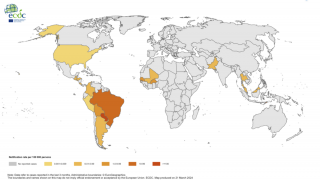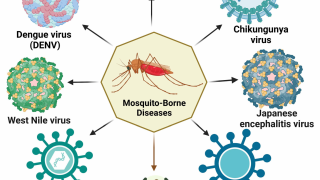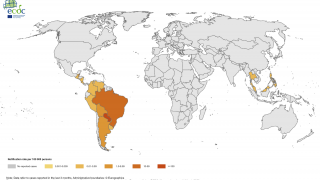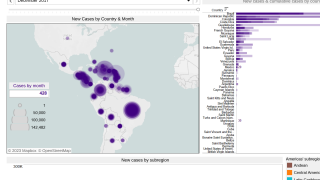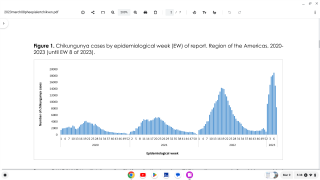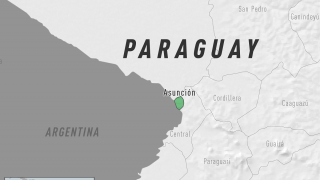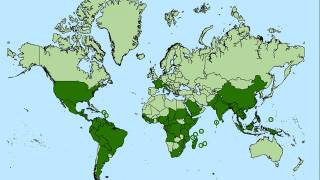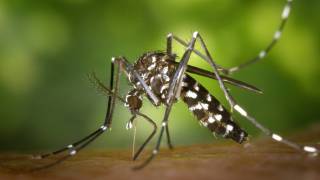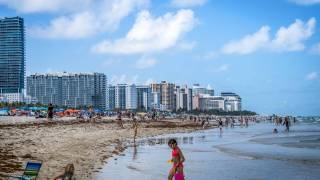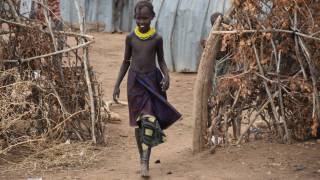Brazil’s Ongoing Disease Outbreaks - September 2019

The South American country of the Republic of Brazil has reported significant disease outbreaks during 2019.
According to the Pan American Health Organization (PAHO) and Brazil Health Department reports as of September 5, 2019, Chikungunya, Dengue, Measles, Yellow Fever, and Zika virus outbreaks have continued during 2019.
Brazil has a well-established immunization program in which vaccines are provided through the Public Health System free of charge to all Brazilians.
However, the increased mobility rates of the population occurring in the last decade has triggered the introduction of vector-borne, infectious diseases throughout urban and rural areas.
These disease outbreaks are impacting the daily lives of Brazil’s 205 million residents and it’s expanding tourism industry, which hosted over 6.6 million international visitors in 2018.
Specifically, the Brazilian state of Sao Paulo appears to be the epicenter for multiple disease outbreaks, such as dengue, measles, and yellow fever.
Listed below are summaries of various disease outbreaks during 2019:
Chikungunya
- Brazil's health authorities reported over 97,900 probable cases of chikungunya as of July 2019. This data represents a 34 increase during the same period in 2018.
- Additionally, 40 fatalities have been reported, with 34 confirmed in the state of Rio de Janeiro.
- Brazil’s Southeast and Northeast regions represent the highest incidence of the mosquito-borne viral disease, with Rio de Janeiro, Rio Grande North and Pará states being highlighted.
- In Brazil, the first Chikungunya cases were identified in the Oiapoque, state of Amapá, and Feira de Santana, state of Bahia, in September 2014. Following genetic analysis of the virus, 2 lineages were detected: the Asian lineage, found in the municipality of Oiapoque; and the Eastern, Central and Southern Africa (ECSA) lineage detected in city of Feira de Santana.
Dengue
- As of July 27, 2019, Brazil has reported about 1.3 million dengue fever cases during 2019. Most importantly, there have been 527 dengue-related fatalities confirmed.
- A recent study in Brazil showed an increased risk of adverse birth outcomes in women with severe dengue during pregnancy. This study demonstrated that dengue hemorrhagic fever in pregnancy is associated with a doubling of the risk of preterm birth and of low birth weight, and that mild dengue fever is associated with an increase of 10%–20% in the risk of preterm birth and low birth weight, respectively. The association between dengue and birth outcomes was strongest during the acute disease phase, within the first 10 days of disease onset.
- During 2016, a large-scale clinical trial to evaluate whether a candidate vaccine can prevent dengue fever was launched in Brazil. The vaccine, TV003, was developed by NIH National Institute of Allergy and Infectious Diseases (NIAID) scientists. The Butantan Institute, a non-profit producer of immunobiological products for Brazil, licensed the NIAID dengue vaccine technology and is sponsoring the placebo-controlled, multi-center Phase 3 trial using the TV003 test vaccine produced in Sao Paulo.
Measles
- According to the new epidemiological bulletin, from June 9 to August 31, 2019, Brazil reported 2,753 additional cases of measles. And the total number of cases has reached 20,292 during 2019.
- The confirmed cases are concentrated in 13 states, most of them 98.37% in the state of São Paulo.
- "The Ministry of Health is daily monitoring both requests for tests for the disease and confirmation of new cases," said the secretary of health surveillance of the Ministry of Health, Wanderson Oliveira.
- The Ministry of Health has already allocated 1.6 million extra doses of the Triple Viral Vaccine to all states to secure the extra dose against measles in all children from six months to 11 months and 29 days.
- Additionally, the Ministry of Health of Brazil warned parents and guardians who will travel with children from 6-months to under one-year-old to municipalities in an outbreak situation, that these children be vaccinated against the disease for at least 15 days before the scheduled travel date.
Yellow Fever
- There is a large, ongoing outbreak of yellow fever in multiple states of Brazil. Since early 2018, a number of unvaccinated travelers to Brazil contracted yellow fever. Several have died.
- As of June 1, 2019, 85 cases and 15 deaths from yellow fever were confirmed. Most of the infected are young male adults in rural areas.
- Travelers to Brazil should protect themselves from yellow fever by getting the yellow fever vaccine at least 10 days before travel, and preventing mosquito bites.
- People who have never been vaccinated against yellow fever should avoid traveling to areas of Brazil where yellow fever vaccination is recommended.
- According to the PAHO from July 2018 through March 2019, Brazil recorded a Yellow Fever case-fatality ratio of 23 percent.
- The preliminary results of the 2018 mass vaccination campaign against yellow fever indicate that 13.3 million people in São Paulo, 6.5 million in Rio de Janeiro, and 1.85 million in the Bahía states were vaccinated.
- During 2019, the Federal Government sent 9.9 million doses of yellow fever vaccines nationwide, with a focus on the Southern Region.
Zika
- Brazil has reported about 9,071 Zika virus cases as of July 27, 2019. This data compares with 6,254 Zika cases reported in 2018.
- The first confirmed case of Zika virus infection in the Americas was reported in Northeast Brazil in May 2015, although studies indicate virus introduction as early as 2013. During November 2015, the Brazilian Ministry of Health declared Zika a national public health emergency.
- Zika rapidly spread across Brazil because the Aedes aegypti mosquito is thought to be the principal vector responsible for the widespread transmission of the virus.
- Some characteristics of the Brazilian epidemic were helpful in establishing the link between Zika infection and microcephaly and other congenital malformations of the central nervous system early in Brazil’s Zika epidemic.
To alert international travelers before visiting Brazil, the CDC updated its pre-trip vaccination recommendation on July 12, 2019:
- Routine vaccines, which include the diphtheria-tetanus-pertussis, varicella, and the annual influenza vaccinations.
- Yellow Fever
- Hepatitis B
- Typhoid
- Measles
Since there is not a preventive vaccine for the Zika virus available today, and because Zika is a cause of severe birth defects, the CDC recommends that pregnant women and couples trying to become pregnant within the next 3 months work with their healthcare providers to carefully consider the risks and possible consequences of travel to areas with risk of Zika.
Additionally, the CDC issued a ‘Do Not Travel’ Alert on August 7, 2019, recommending that ‘travelers avoid all nonessential travel to Brazil’s northern neighbor, Venezuela.’
This CDC Level 3 Travel Alert says ‘Venezuela is experiencing infectious disease outbreaks and adequate healthcare is currently not available in most of the country.’
Furthermore, during February 2019, the US Department of State expanded its Level 2 Travel Advisory saying ‘Avoid traveling to any areas within 150 km of Brazil’s land borders with Venezuela, Colombia, Peru, Bolivia, Guyana, Suriname, French Guiana, and Paraguay due to crime.’
For anyone departing from the USA, vaccination services, related travel medications, and counseling appointments can be scheduled with a local pharmacy by visiting Vax-Before-Travel.
Vaccines, like any medicine, can have side effects. You are encouraged to report vaccine side effects to the CDC.
Published by Vax Before Travel
Our Trust Standards: Medical Advisory Committee
- CDC: Health Information for Travelers to Brazil
- Monitoramento dos casos de arboviroses urbanas transmitidas pelo Aedes (dengue, chikungunya e Zika) até a Semana Epidemiológica
- Region of the Americas Celebrates 25 Years of Polio Elimination
- PAHO warns of complex dengue situation in Latin America and the Caribbean
- Chikungunya surveillance in Brazil: challenges in the context of Public Health
- 18% increase in measles cases in Brazil
- Dengue during pregnancy and live birth outcomes: a cohort of linked data from Brazil
- The Zika Virus Epidemic in Brazil: From Discovery to Future Implications
- The Challenges Imposed by Dengue, Zika, and Chikungunya to Brazil

